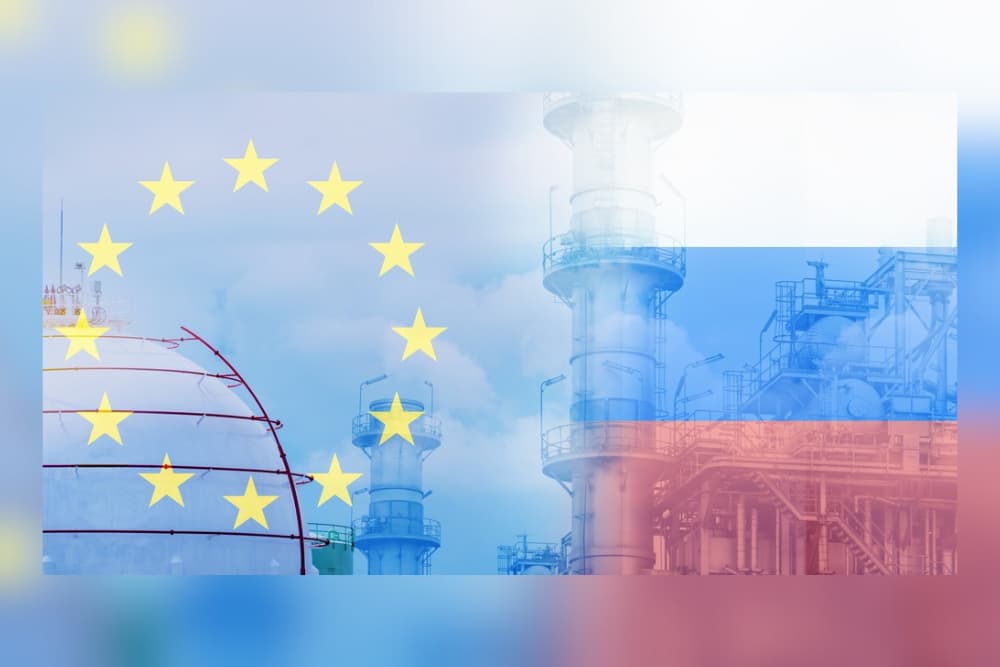The European Union has moved to tighten its energy sanctions against Moscow, announcing plans to phase out Russian liquefied natural gas (LNG) imports a year earlier than originally scheduled.
The bloc now aims to complete its withdrawal by 1 January 2027, as part of its 19th sanctions package on Russia, with pressure from US President Donald Trump influencing the decision.
“The revenues from fossil fuels sustain Russia’s war economy. We want to cut these revenues,” stated European Commission President Ursula von der Leyen.
The proposal, which requires unanimous backing from all 27 EU governments, will undergo scrutiny by member states in the coming weeks.
Hungary and Slovakia, countries historically seen as closer to Moscow, have previously slowed down sanctions negotiations before agreeing to compromises.
Despite this, EU foreign policy chief Kaja Kallas emphasised the importance of urgency, writing on X that the measures aimed “to speed up the phase-out of Russian liquefied natural gas (to be complete) by 1 Jan 2027.”
The new sanctions also extend beyond LNG. EU officials indicated the package would target Russia’s so-called “shadow” tanker fleet, cryptocurrency channels, banks in Russia and Central Asia, refineries in China, and certain special economic zones.
“We are now going after those who fuel Russia’s war, who purchase oil in breach of sanctions,” von der Leyen added.
Kremlin spokesperson Dmitry Peskov responded that the EU’s decision would have no impact on Russia’s position, insisting the country would not be swayed by new measures.
At the same time, Trump has been urging Europe to assume a stronger role in curtailing Russia’s war in Ukraine, a step that may also increase the bloc’s reliance on US LNG exports to close supply gaps left by the Russian withdrawal.
The EU initially set 1 January 2028 as the deadline for halting Russian LNG imports, but the timeline has been accelerated due to mounting geopolitical pressure and energy security concerns.
Russia’s invasion of Ukraine in February 2022 triggered the EU’s first coordinated push to reduce its energy dependency on Moscow, with coal and pipeline gas phased out more aggressively than LNG, which remained more difficult to replace.
The decision to move up the LNG cut-off date reflects both a shift in political calculations and a recognition of the continuing flow of funds from European consumers into Russia’s war machine.
Over the past two years, European policymakers have grappled with balancing energy security against sanctions.
While Russian LNG deliveries accounted for 22 per cent of EU imports in early 2021, Eurostat data shows that share had dropped to 14 per cent by the second quarter of 2025 as alternative supplies were sourced from the US, Qatar, and African producers.
Yet, despite the decline, several key European economies — including Spain, Belgium, the Netherlands and France — remain reliant on Russian LNG, complicating negotiations over earlier sanctions.
At the same time, countries such as Slovakia, Hungary and Bulgaria continue to receive Russian gas through the TurkStream pipeline, underscoring the uneven transition.
Share this story
